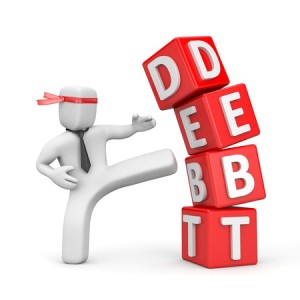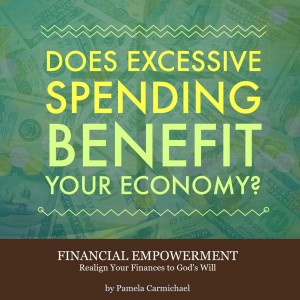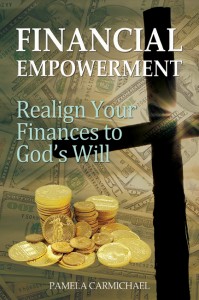




 Debt – sounds like a bad word doesn’t it. For many adults, it is definitely a bad word and a bad experience. Debt has its positives but there are often more negatives than positives.
Debt – sounds like a bad word doesn’t it. For many adults, it is definitely a bad word and a bad experience. Debt has its positives but there are often more negatives than positives.
The Bible with over 2,500 scriptures on money does speak about debt. The Mosaic Law encouraged the practice of lending (Deut. 15:7; Ps. 37:26; Matt. 5:42); but it forbade the charging of interest except from foreigners. Usury (the sum paid for the use of money, hence interest; not, as in the modern sense, exorbitant interest.) was strongly condemned (Prov. 28:8; Ezek. 18:8, 13, 17; 22:12; Ps. 15:5). On the Sabbatical year all pecuniary obligations were cancelled (Deut. 15:1-11). These regulations prevented the accumulation of debt. – Easton’s 1897 Bible Dictionary
That’s interesting. God actually made a plan for His people to be debt-free! He wants you and me to avoid debt in two ways: (1) not to lend with interest and (2) not to accumulate debt.
In our world today, it seems like having some form of debt is the norm. I would agree that at times there is a need to borrow, but the key is to not remain in debt. Debt does not have to be forever!
There are ways in which debt can prove to be good or to be a necessary means to an end:
- For investment purposes. You may need funding in order to grow or the start a new business and the way to get it may be through debt. (1 Kings 4: 3-4).
- For emergency backup. Sometimes your only option may be to use immediate credit i.e. your credit card. However, do your best to avoid this and you can if you have a savings fund in place to handle unexpected expenses.
- To make an online payment with a merchant who does not accept debit cards. In a case like this, make sure to pay the card balance off on or before the due date. Alternatively, you can use a Credit card company sponsored card (like the Visa Debit Card which linked to your bank account) or a preloaded “credit” card that uses funds you have added to the card.
Those a just a few ways debt can be used for your benefit and to accomplish something that would otherwise be more difficult or not possible.
How do you know when your debt has become bad and ugly?
Debt is BAD when:
- You have more debt than you have the financial ability to easily repay. For example, in the parable of the unforgiving servant, he was not able to repay his debt (Matt. 18: 23-25).
- The creditor is ready and willing to repossess property. In Biblical times, the person who defaulted on repayment and their family were enslaved by the creditor (2 Kings 4: 1-2; Matt. 18: 23-25).
- You quickly resort to credit cards because there is no available cash or savings. Easy access to credit for those who are big spenders speaks disaster.
- You are unable to payoff your credit card balances in full each time you use them or within a few months.
- You are using credit for your day-to-day needs like food, gasoline, clothing, etc.
But debt gets ugly when it has an impact on the other areas of your life. Debt is UGLY when:
- You experience increased emotional stress or worry because you don’t know how you will be able to repay.
- You start exhibiting dishonest behavior such as trying to avoid calls from your creditors. For example, telling your children or someone in the household to lie that you’re not at home when the creditors call.
- You feel oppressed, distress or boxed-in because of the limiting effects of too much debt.
- You are discontented and frustrated and you take it out by being harsh with your loved ones. This often results in difficult conversations with your spouse and other family members followed by strained and sometimes broken relationships.
This post is a result of a friend’s request to learn more about good vs. bad debt. I think that each one has to access their financial position and the debt that they have to determine if it is good or bad. What is bad for one may not be for another based on earning power and financial position. There are questions that you have to ask yourself either before or after you have acquired debt. Consider these questions:
- Will I be able to repay this credit card balance within a month or two if I make this purchase?
- Should I take a house mortgage for this amount? Would this level of credit result in difficulty repaying it? Can I afford the payment amount plus property taxes and house maintenance costs along with the typical expenses that I already have?
When considering credit, borrow according to how much you can comfortably repay rather than according to how much the lender says you are qualified to borrow. It is so easy to access credit. Therefore be cautious about getting into debt since it’s often easier to get in that get out! The credit card companies and other financial institutions can be sometimes relentless in their pursuit to get your business i.e. your hard earned money. Ask God for wisdom in managing your financial and other resources. Seek to honor Him and to live a stress free life by limiting the amount of debt you incur.
Want to learn about getting out of debt? Download this free gift – 7 Biblical Debt Solutions.
What do you consider to be bad debt?




